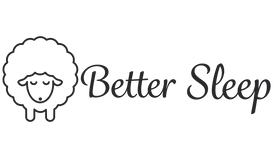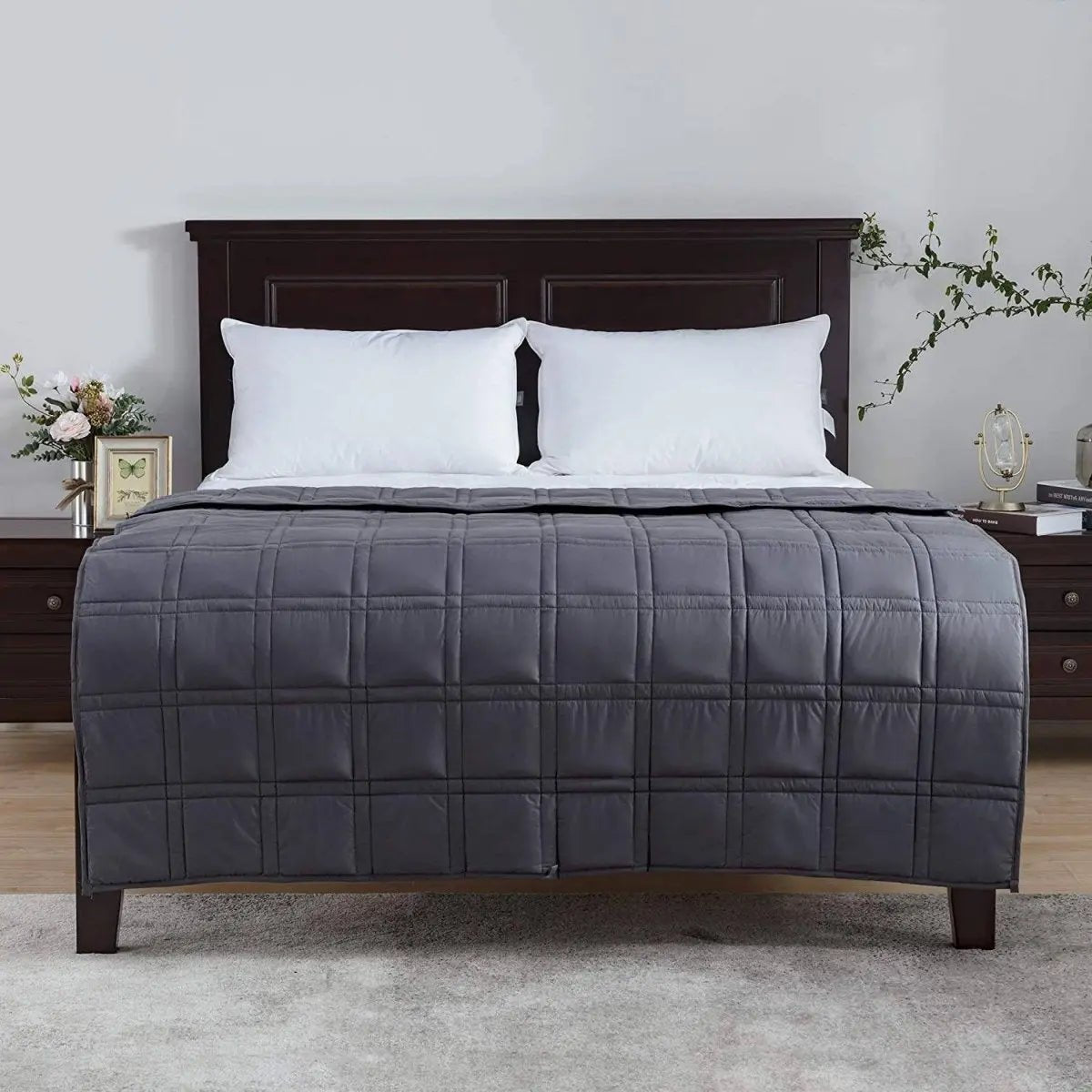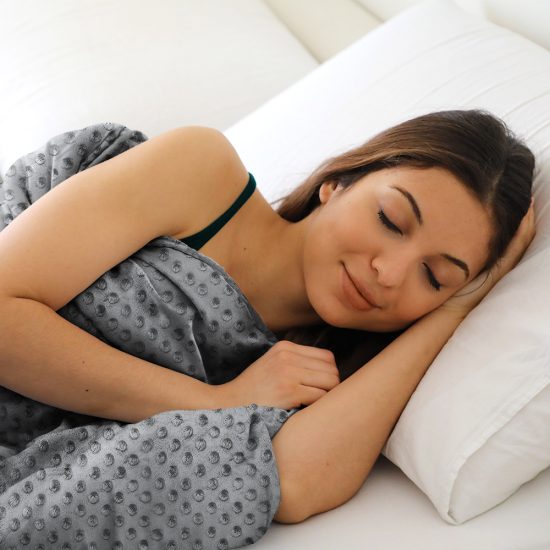Weighted blanket benefits:Does it work for ADHD issue?Read Now
Weighted blankets and ADHD
People with ADHD may find it difficult to relax and self-regulate. They frequently have difficulty controlling their emotions and behavior. Weighted blankets can aid some people.
The purpose of a weighted blanket is to relieve tension by applying pressure to the body. That pressure can enhance the release of serotonin, a neurotransmitter in the brain that induces relaxation.
Weighted blankets aren't a recent invention. They've long been utilized by occupational therapists (OTs) to help with sensory difficulties and anxiety. The blankets act in a similar way to a technique used in occupational therapy called deep touch pressure therapy (DPT).
People with ADHD can self-regulate and feel more relaxed by using a weighted blanket. Calming techniques include exercise, mindfulness, and deep breathing.
Glass beads or plastic pellets are used to fill these blankets, which come in a variety of weights and sizes. Some contain additional layers of fabric to make them heavier. There are many different kinds, including ones for children. (However, do not use them with infants and toddlers.)
Weighted blanket for ADHD – How Can It Help?
If you or your child suffers from attention deficit hyperactivity disorder (ADHD), you understand how difficult it may be. While the symptoms of ADHD differ from person to person, those who suffer from it frequently struggle to focus and retain vital information. This can make crucial responsibilities like finishing schooling, paying payments on time, and keeping a regular job far more difficult.
Weighted blankets have been increasingly popular as a supplement to normal treatment for persons with ADHD in recent years. These therapeutic blankets are meant to uniformly distribute pressure across the body, which may aid ADHD sufferers in getting the rest they require.
Interested in learning more about the advantages of weighted blankets for ADHD? In this article, we'll look at how covering one in a warm weighted blanket can help you manage your ADHD symptoms and live a healthier, happier life.
Why Sleep Is Important for People with ADHD :
Sleep is important for everyone's health and well-being, but it's especially crucial for people with ADHD. Sleep problems are widespread among people with ADHD, according to one study.
The following are the most prevalent sleep disruptions in people with ADHD:
- Insomnia
- Narcolepsy
- Sleep breathing problems
- Irritable bowel syndrome
- Sleep disorders involving the circadian rhythm
Sleep difficulties can increase ADHD symptoms, creating a difficult-to-break negative cycle between ADHD and sleep. As a result, getting a handle on sleep disorders and finding minor measures to improve sleep in persons with ADHD is critical.
What You Should Know About the Sleep-Recovery Relationship
Whether you're a professional athlete, a diehard fitness junkie, or someone who likes a weekend run, you probably understand the need for rest and recuperation. After a strenuous workout, getting enough rest allows your body to rebuild itself, allowing you to return stronger and obtain greater benefits from future workouts. Have you ever thought about how sleep fits into your post-workout recovery strategy? (Hint: It's more crucial than you might believe.)
We'll look at the link between sleep and recovery, the detrimental effects of sleep deprivation on athletic performance, and how something as simple as using a weighted blanket may help athletes get the most out of their sleep and performance on the field in this tutorial.
What Is the Relationship Between Sleep and Recovery?
More than simply your workouts are affected by a bad night's sleep. Sleep deprivation can disturb your body's hormone balance, resulting in subtle changes that can hinder your recovery.
Cortisol
Sleep deprivation might cause your body to create more cortisol, a stress hormone that increases muscle protein breakdown. Cortisol is vital during exercise because it allows you to get into your fat and glycogen stores, but too much can slow down the recovery process by producing muscle tension and stress, restricted blood flow, and lactic acid build-up in the muscles.
Cytokines
Your body creates cytokines, pro-inflammatory proteins that aid in infection resistance and muscle repair and growth, while you sleep. Sleep deprivation can lower cytokine levels, resulting in sickness and little muscle adaptation (i.e., fewer gains).
Human Growth Hormone
Sleep deprivation has been shown to impede the release of human growth hormone (HGH), which is important for muscle tissue repair and rebuilding following exercise. Human growth hormone is produced naturally by the body, especially at night, with HGH levels often peaking during the deepest stages of sleep. As a result, athletes must place a premium on both the quantity and quality of their sleep.
Weighted blankets and ADHD












Leave a comment